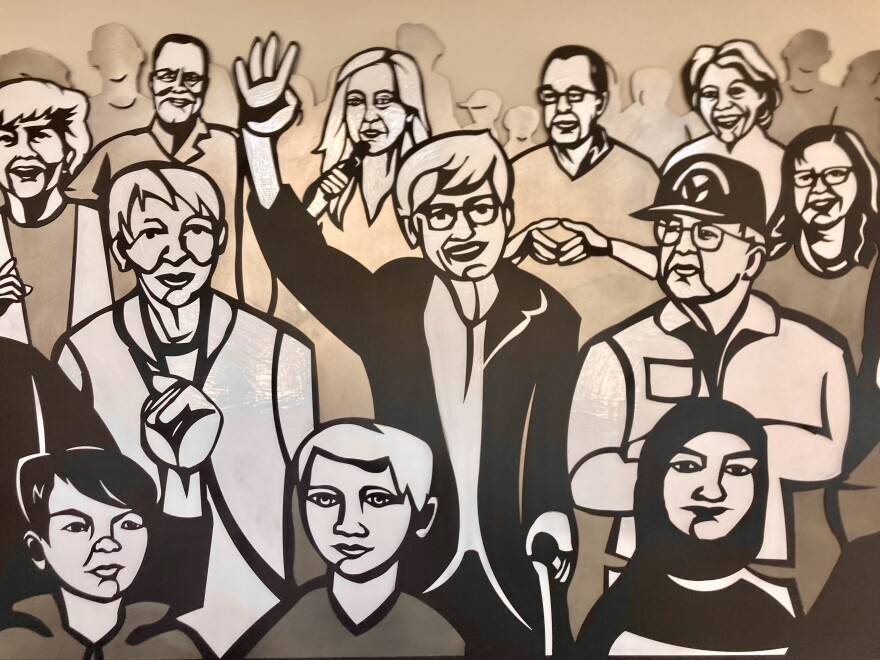The education nonprofit behind Boise’s Anne Frank Memorial is getting its own building in downtown Boise. The Wassmuth Center for Human Rights will now reside in a brand new space downtown.
The center was first founded 22 years ago to build the only monument on U.S. soil dedicated to the young victim of the Holocaust. Since then, the center has been offering classes, lectures and trainings in the community.
“As the demand for programming grew, it really became apparent that having a space ideally adjacent to the memorial was kind of the dream,” said Director Christina Bruce-Bennion ahead of the grand opening on Thursday. “And here we are.”

Bruce-Bennion said the center’s goal is to promote human dignity through education. The new space will be a place for the public — both adults and children — to engage with local artists, attend classes and reflect on Idaho’s history of human rights. It offers access to a library collection, an interactive display featuring testimonies of holocaust survivors and various reflective art pieces.
But the center does not focus on particular human violations, Bruce-Bennion added.
“It's really more about, 'how do we give people the information, how do we learn from history and connect it to today? How can that lead to informed action?'” she said. Instead the center offers programming to identify what it calls the “Spiral of Injustice.”
“That spiral looks like a tornado,” Bruce-Bennion explained. “The top level is language. And that's where it starts, right? It's how we begin with othering, how we talk about other groups. And then if we don't interrupt the spiral at that point, it can continue to avoidance, discrimination, violence and elimination.”
The center was funded by roughly 650 donors and cost $6.4 million. It opens its doors to the public on Thursday.



